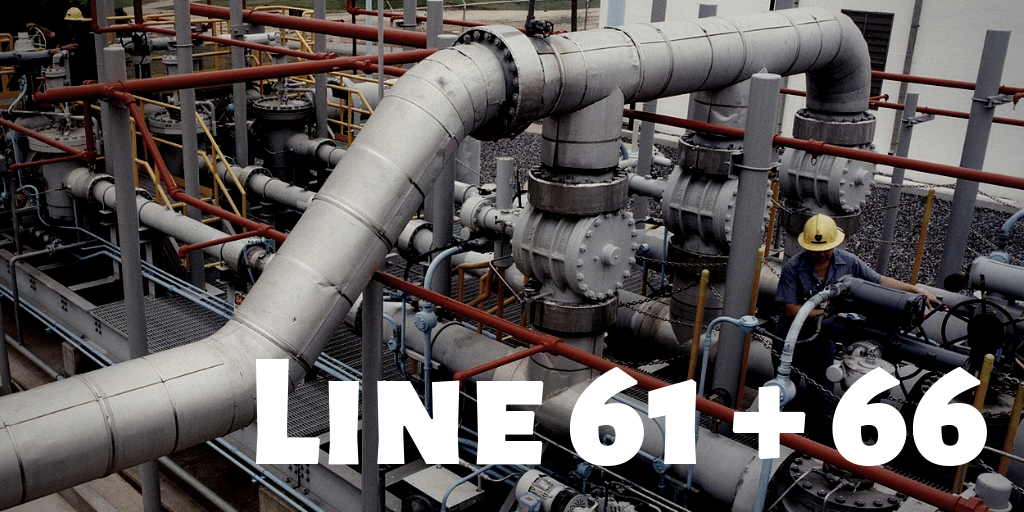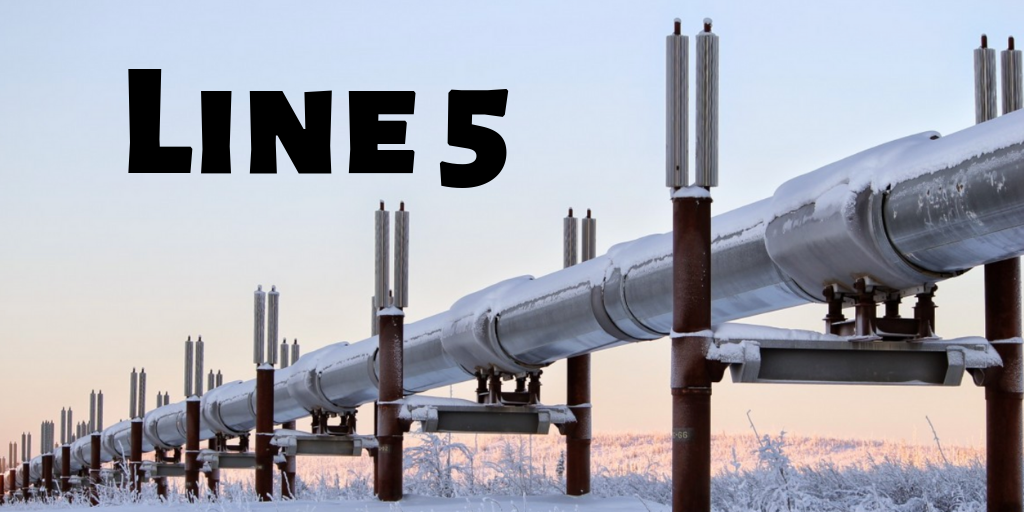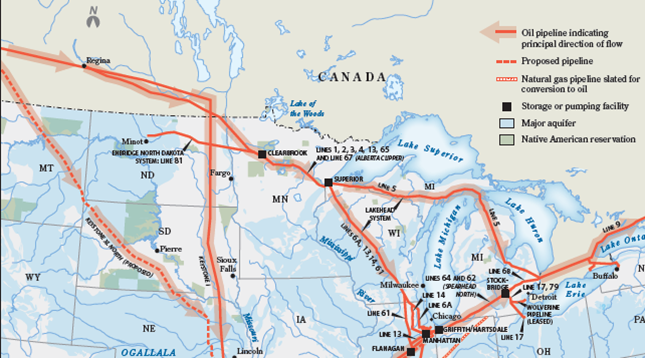
Oil Pipelines in Wisconsin
For a state without any oil reserves or production, a staggering amount of oil flows beneath Wisconsin land. Several massive pipelines slash across the entire state and pump more than 1.2 million barrels a day over 1000 miles — representing 20% of all US crude oil imports. Unfortunately, not only does the oil in these pipelines contribute to rising carbon emissions and air pollution, but constructing the pipelines themselves wreaks environmental and property damage across Wisconsin. Worst of all, the pipelines are prone to severe leaks that threaten large swaths of land and important bodies of water — including the Great Lakes.
The oil coursing through this system originates from the notorious Athabasca tar sands of Canada, where fossil fuel companies clear cut vast stretches of the pristine boreal forest to mine crude oil deposits in open pits, poisoning nearby lakes and rivers in the process and devastating important ecosystems as well as First Nations lands.
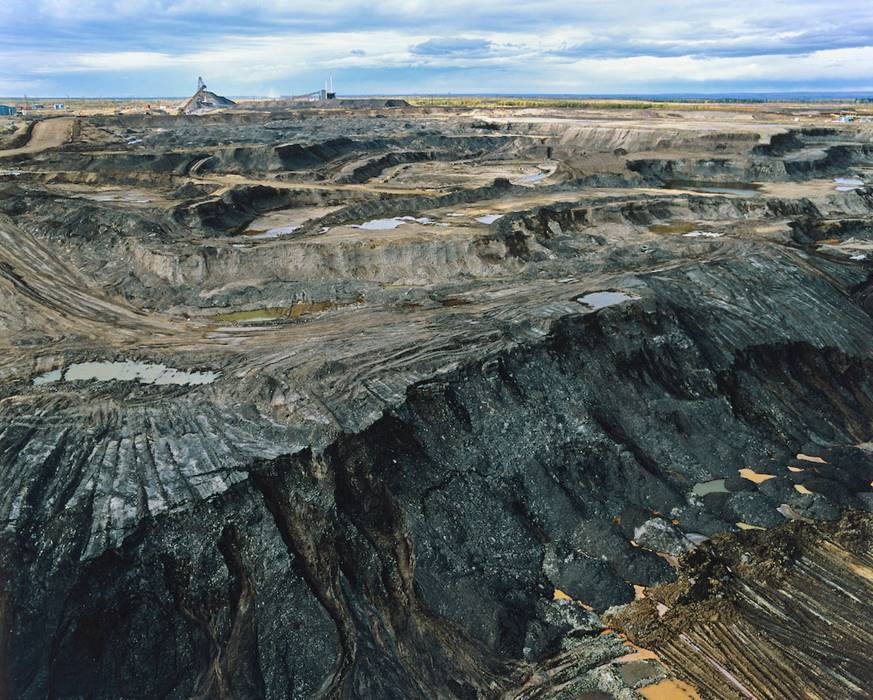
Over the last decade, Enbridge Energy — the company responsible for this environmental destruction — has continued to force more tar sands oil through these aging pipelines despite the risks, with the intent of scaling up production and profit. Now they want to continue this process by renovating existing pipelines in Wisconsin as well as potentially adding new ones. Before discussing what we can do to help protect Wisconsin from these grave dangers, it’s important to understand the problems tar sands and oil pipelines pose to the state.
What is tar sands oil?
Tar sands oil is a type of thick, impure, and sludge-like crude oil that must be diluted with other toxic chemicals for transport to refineries, where it’s processed into petroleum products. Producing it is more expensive and destructive than conventional oil, and the process emits 22% more carbon dioxide. Tar sands spills are also much more difficult and 15 times as costly to clean up.
Unfortunately for Wisconsin, the pipelines crisscrossing our state carry tar sands oil, transporting it from the open-pit mines of Alberta, Canada to refineries in other states and provinces. And now Enbridge has dramatically expanded the capacity of some of the existing pipelines — including one that runs from Minnesota to Superior, Wisconsin, and another that runs from Superior through the Lake Geneva area into Illinois (Line 61). Another tentative proposal entails constructing a new pipeline along this existing route (Line 66).
To learn more about Enbridge's schemes to expand in Wisconsin, check out the following pages about Line 61, Line 66, and Line 5:
Why is expanding oil pipeline transport in Wisconsin a bad idea?
1) Oil pipeline expansions would encourage and accelerate the terribly destructive process of tar sands mining. As previously mentioned, tar sands extraction involves massive deforestation — irreparably damaging beautiful and untainted wilderness and transforming these areas into post-apocalyptic wastelands, all in the name of corporate greed. Not only has Big Oil already razed almost 2 million acres of forest and adversely affected another 30 million acres from 2000 to 2013, but they’ve harmed the wildlife that inhabits these lands too, from caribou to wolves to whooping cranes. And because this process produces vast quantities of wastewater — forming nearly 70 square miles of toxic “waste lakes” — tar sands extraction also contaminates nearby waters with heavy metals and carcinogenic compounds, threatening human health in nearby areas.
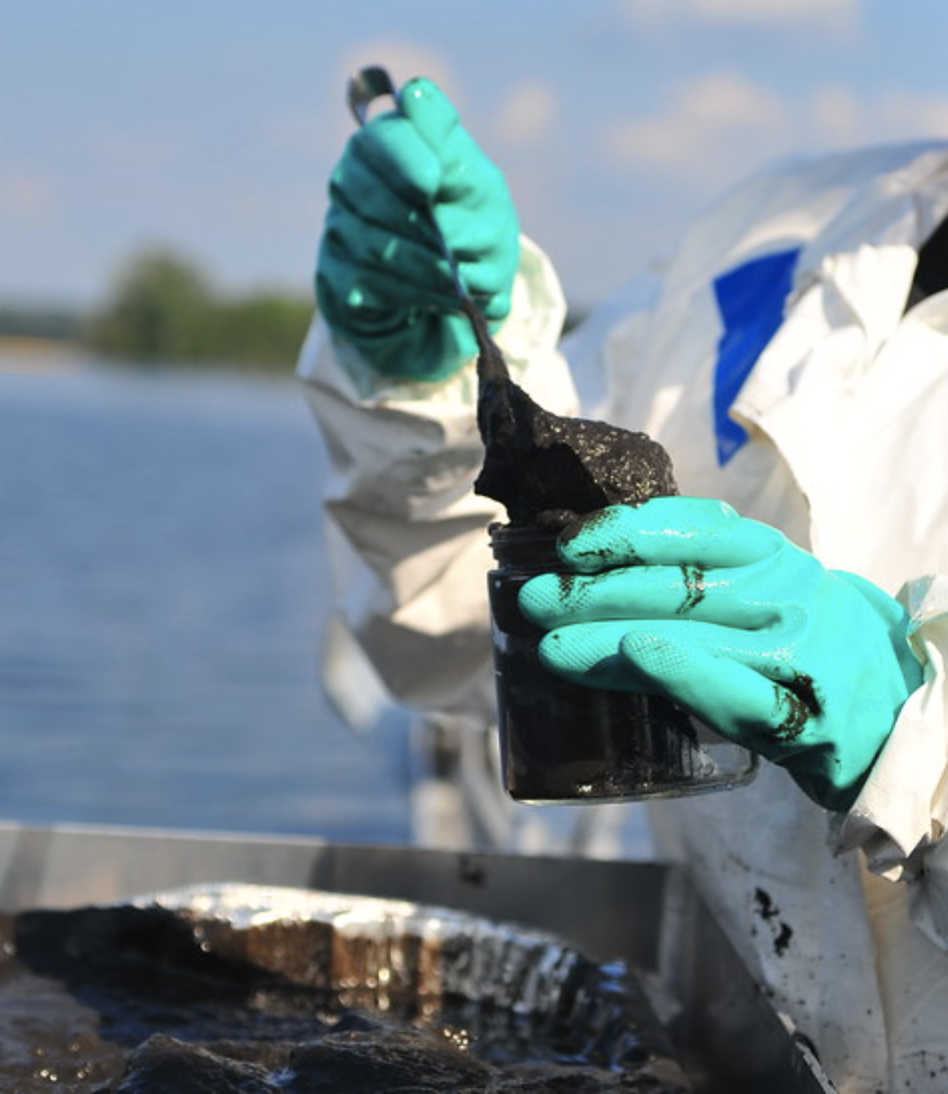 2) Tar sands pipelines risk harmful oil spills that threaten Wisconsin’s ecology, drinking water, and economy. Enbridge has a notorious reputation for reckless environmental safety standards. They frequently fail to install proper safety features, skip inspections, and react too slowly to potential problems. In just the 11-year time span from 1999 to 2010, this negligence resulted in 800 spills and pipeline ruptures that unleashed a total of more than 6 million gallons of oil into our environment. Wisconsin has sustained several of these catastrophes, including a 189,000-gallon spill near Superior in 2003 and a 201,000-gallon spill near the Chippewa River in 2007. If the oil leaches into the groundwater, it poses a tremendous hazard to the quality of our drinking water. Unlike conventional oil, tar sands oil also often sinks and sticks to the bottoms of rivers and lakes, making clean-up much more costly and difficult. For example, a spill near Kalamazoo, Michigan contaminated a 30 mile stretch of river and surrounding areas — leading to home evacuations, widespread ecosystem loss, and a declaration of state disaster. Cleaning up just this one spill cost more than $1 billion and took over four years. We cannot risk this happening in Wisconsin, as we rely on our lakes and rivers for jobs, tourism, recreation, and cultural pride.
2) Tar sands pipelines risk harmful oil spills that threaten Wisconsin’s ecology, drinking water, and economy. Enbridge has a notorious reputation for reckless environmental safety standards. They frequently fail to install proper safety features, skip inspections, and react too slowly to potential problems. In just the 11-year time span from 1999 to 2010, this negligence resulted in 800 spills and pipeline ruptures that unleashed a total of more than 6 million gallons of oil into our environment. Wisconsin has sustained several of these catastrophes, including a 189,000-gallon spill near Superior in 2003 and a 201,000-gallon spill near the Chippewa River in 2007. If the oil leaches into the groundwater, it poses a tremendous hazard to the quality of our drinking water. Unlike conventional oil, tar sands oil also often sinks and sticks to the bottoms of rivers and lakes, making clean-up much more costly and difficult. For example, a spill near Kalamazoo, Michigan contaminated a 30 mile stretch of river and surrounding areas — leading to home evacuations, widespread ecosystem loss, and a declaration of state disaster. Cleaning up just this one spill cost more than $1 billion and took over four years. We cannot risk this happening in Wisconsin, as we rely on our lakes and rivers for jobs, tourism, recreation, and cultural pride.
To make matters worse, a few Enbridge pipelines run this exceptionally toxic oil dangerously close to the Great Lakes, including one that traverses Lake Michigan. Because these lakes supply drinking water to 48 million people and fuel tens of billions of dollars of economic activity (in addition to providing incalculable recreational and cultural value), a spill near the Great Lakes would be particularly devastating. In fact, scientists estimate that a spill on Enbridge’s Line 5 Pipeline that runs from Superior, Wisconsin to Sarnia, Ontario could contaminate 700 miles of shoreline and cost $1 billion to clean. Enbridge also wants to construct massive oil tanks on the shores of Lake Superior, again posing an unacceptable risk to our state’s resources.
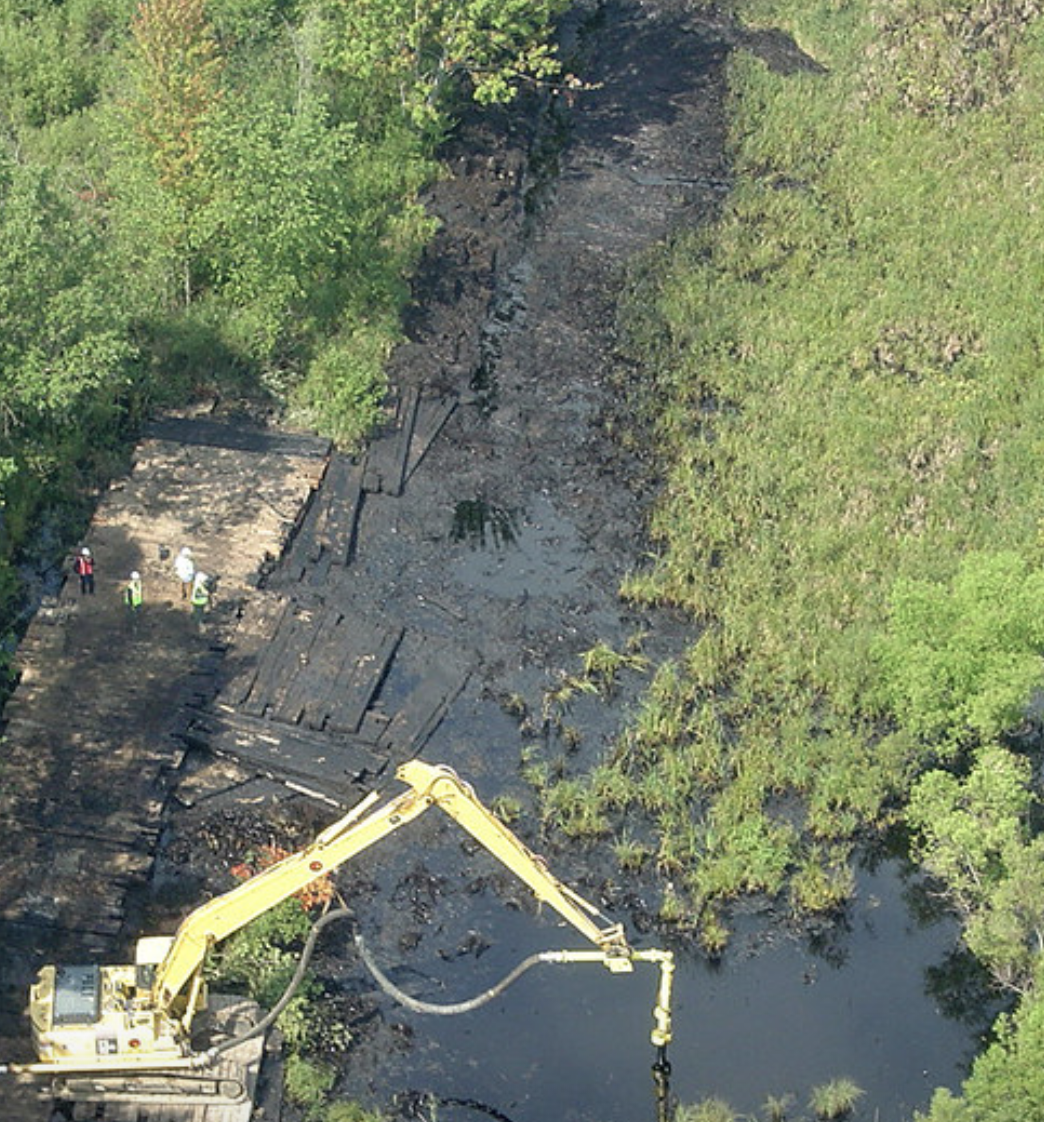 3) Constructing pipelines involves destroying private property and ecosystems, including intruding on tribal land, state parks, and family farms. Currently, pipelines cut through 12 Wisconsin counties, and the company plans to take more property away from landowners and their families. Allowing a corporation with a terrible track record to seize any more of our state’s land makes little sense. The state government and Enbridge have also conspired to rob tribes of their federally guaranteed lands, exemplifying their callous and manipulative strategy to exploit Wisconsin’s resources. We are more than just a highway for a mega-corporation to transport their toxic products.
3) Constructing pipelines involves destroying private property and ecosystems, including intruding on tribal land, state parks, and family farms. Currently, pipelines cut through 12 Wisconsin counties, and the company plans to take more property away from landowners and their families. Allowing a corporation with a terrible track record to seize any more of our state’s land makes little sense. The state government and Enbridge have also conspired to rob tribes of their federally guaranteed lands, exemplifying their callous and manipulative strategy to exploit Wisconsin’s resources. We are more than just a highway for a mega-corporation to transport their toxic products.
4) We want to reduce oil consumption, not increase it. Excessive oil consumption comes with a litany of accompanying ills, like air pollution, water contamination, and climate change. As we transition to electric vehicles and develop better public transit systems, we will become less dependent on dirty oil. Because it soon will become a remnant of the past, we don’t want to get stuck with any more wasteful and obsolete pipelines running through our state. Investing in cleaner sources of energy not only makes environmental sense but fiscal sense as well.
What can we do to prevent the expansion of these pipelines?
-
Check out the Wisconsin Safe Energy Alliance to sign other petitions, join community groups, purchase signs, or perform other important tasks.
-
Volunteer with the Sierra Club! Click here for more information.
